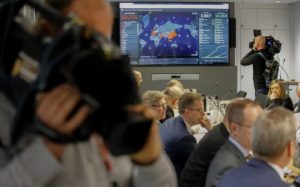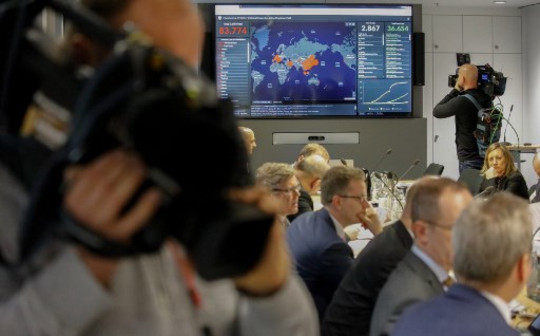 As the media coverage of the Coronavirus (COVID-19) outbreak idominates media all over the world, the International Federation of Journalists (IFJ) has urged media to report responsibly and avoid creating any unjustified panic that could worsen the situation.
As the media coverage of the Coronavirus (COVID-19) outbreak idominates media all over the world, the International Federation of Journalists (IFJ) has urged media to report responsibly and avoid creating any unjustified panic that could worsen the situation.
In the light of the emergence of new coronavirus infections across the world, the IFJ believes the media’s role is to provide citizens with verified, accurate and factual reporting and avoiding sensationalist reporting that could lead to general panic and fear.
In the context of catastrophes or epidemics, following the IFJ Global Charter of Ethics for Journalists becomes more important than ever. The principles gathered in this Charter are the best antidote against misinformation, fake news and conspiracy theories that are circulating on social media. As its first article reads, “respect for the facts and for the right of the public to truth is the first duty of the journalist.”
Journalists and media must report on facts and reliable scientific sources, avoiding speculation. Fear-inducing vocabulary that could create a state of alarm that does not correspond to reality should be avoided. Journalists should also be especially sensitive with the privacy of affected people.
Accordingly, the IFJ also calls on public authorities and medical institutions to provide timely and transparent information so that journalists have access to all the information.
IFJ General Secretary, Anthony Bellanger, said: “The journalist’s responsibility towards the public takes precedence over any other responsibility. Media can increase public awareness of the situation regarding the coronavirus through reporting that educates, warns and informs properly on the problem. That way they can also be part of the solution. It’s in this kind of context when we have the opportunity to again demonstrate to citizens the value of quality, ethical journalism”.
Source: IFJ

